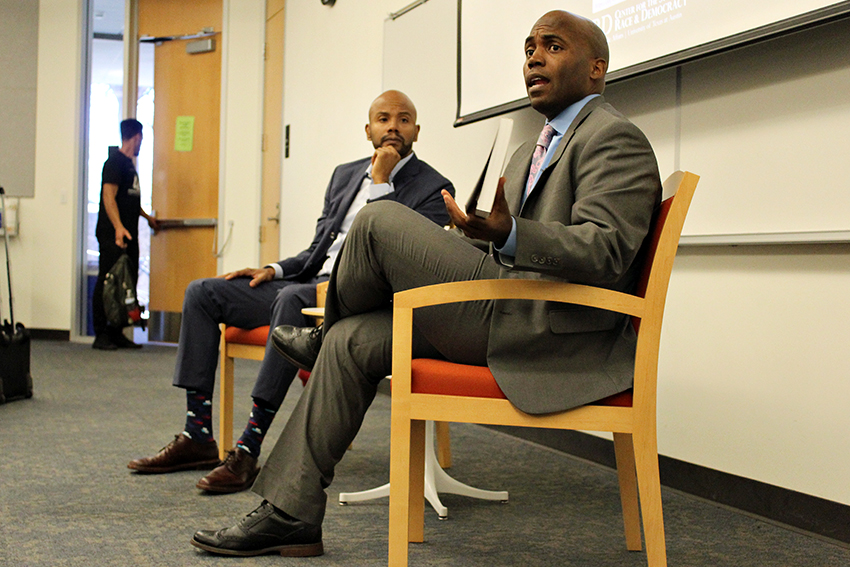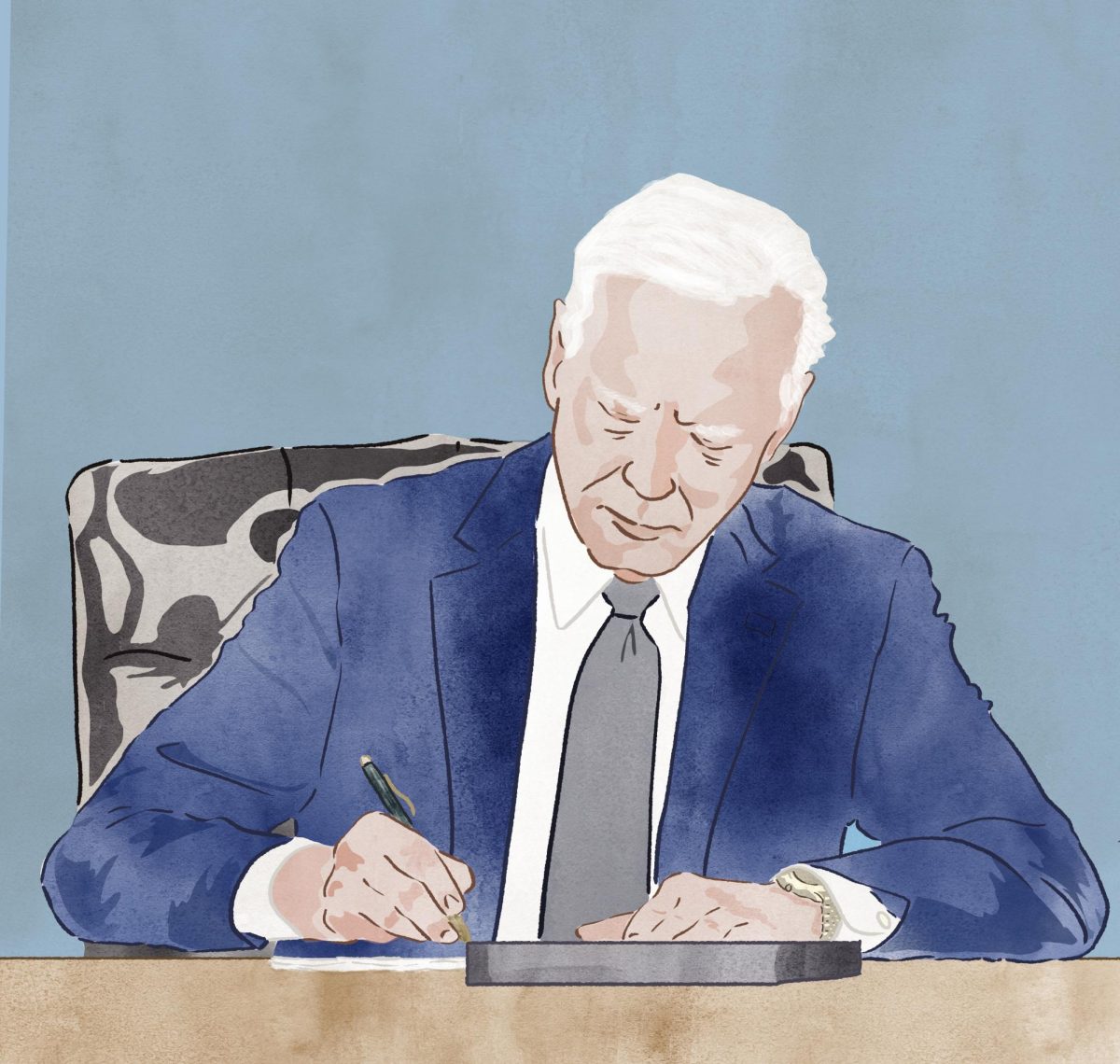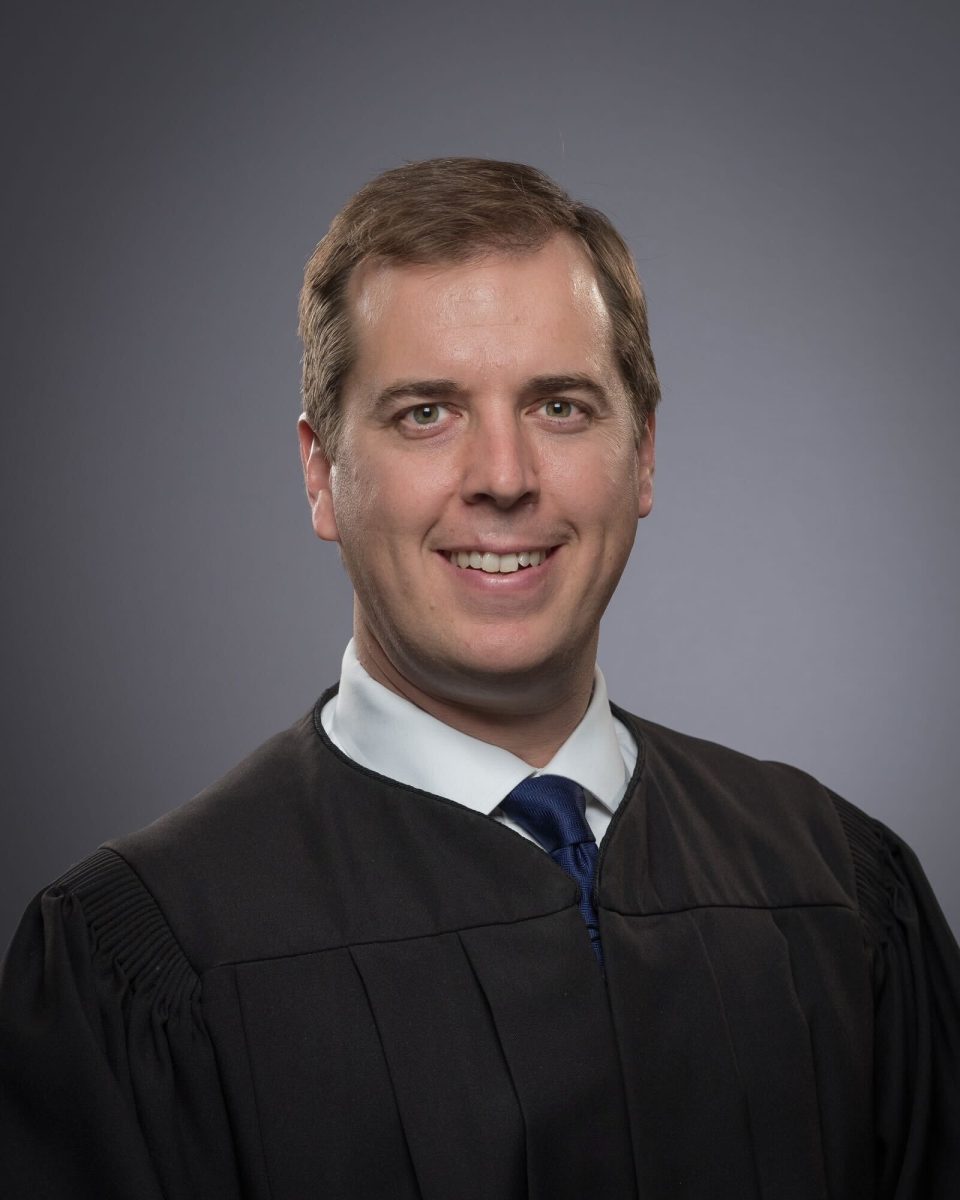Using Marvel’s newest superhero release, black power academics analyzed the “Black Panther” movie’s significance as a segue to talk about black nationalism at a discussionTuesday afternoon.
Peniel Joseph, founding director of UT’s Center for the Study of Race and Democracy, and Yohuru Williams, dean of the College of Arts and Sciences at the University of St. Thomas, explained the themes of colorism, feminism and the dichotomy between violence and nonviolence in the movie.
“This was a film that celebrated blackness in all its complexity,” Williams said. “It was a wonderful affirmation of the diversity of a people who sometimes are forced into the category of African-American or something else, and there’s so much more that we bring to it.”
The film centers around a superhero and the fictional African nation of Wakanda and features a majority of African-American characters. In front of a crowd of more than 50 people, both Joseph and Williams said the film’s portrayal of women in leadership roles might seem futuristic but is rooted in historical freedom struggles.
“You never hear about the female leaders, both at the local level and nationally, who helped keep the (Black Panther Party) afloat in those moments when it was, quite frankly, in jeopardy,” Williams said. “Because we don’t hear that, suddenly, what’s happening in Wakanda seems so foreign … (Joseph) and I had the same moment where we were like, ‘No … if you study (the Student Nonviolent Coordinating Committee) and the Black Panthers that’s Afro-pastism.’”
Joseph said emphasis should be placed on overcoming how black Americans are “the most hated black people on the planet” and are often “demonized” as a result.
“We have to be in solidarity with black America’s story as well, because what people try to do in this country is divide us,” Joseph said. “People love to go to the Peace Corps and say, ‘I want to help Uganda’ … but no one wants to help Chicago, you don’t want to help people here.”
Mary Mills, a public affairs graduate student, said part of the movie’s significance is in how it showed the importance of representation in Hollywood films as well as in the timing of the release.
“(The ‘Black Panther’ movie) introduces a character that some people are already familiar with and already like, but places it in a critical cultural moment that we’re experiencing as a country,” Mills said.





















